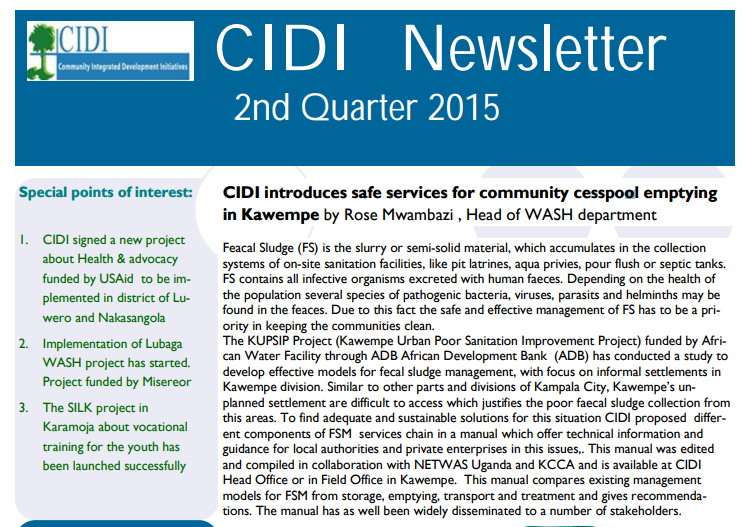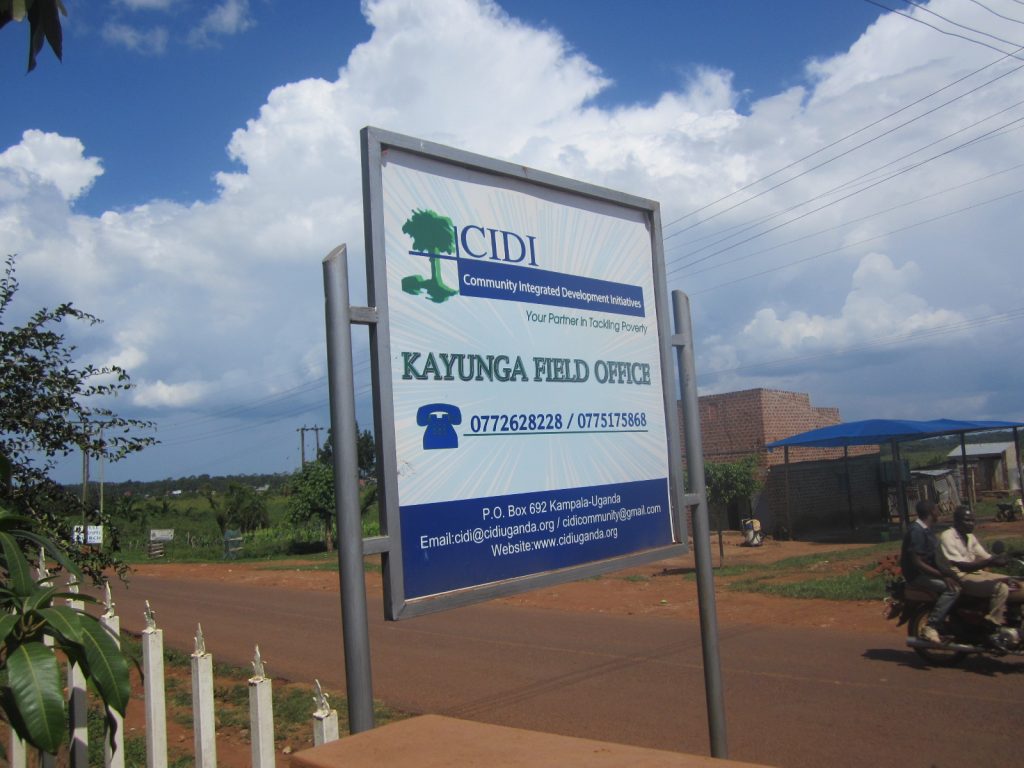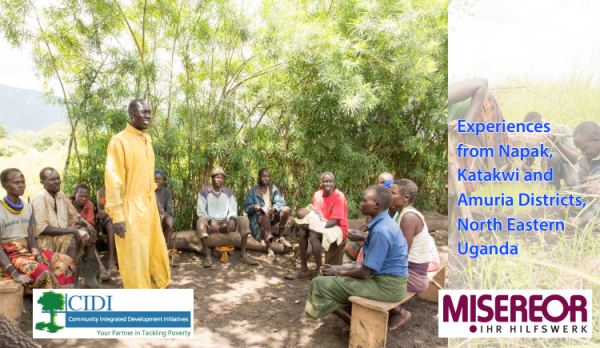CIDI Newsletter 2nd Quarter 2015

CIDI Newsletter 2nd Quarter 2015
Feacal Sludge (FS) is the slurry or semi-solid material, which accumulates in the collection
systems of on-site sanitation facilities, like pit latrines, aqua privies, pour flush or septic tanks.
FS contains all infective organisms excreted with human faeces. Depending on the health of
the population several species of pathogenic bacteria, viruses, parasits and helminths may be
found in the feaces. Due to this fact the safe and effective management of FS has to be a priority in keeping the communities clean.
The KUPSIP Project (Kawempe Urban Poor Sanitation Improvement Project) funded by African Water Facility through ADB African Development Bank (ADB) has conducted a study to
develop effective models for fecal sludge management, with focus on informal settlements in
Kawempe division. Similar to other parts and divisions of Kampala City, Kawempe’s unplanned settlement are difficult to access which justifies the poor faecal sludge collection from
this areas. To find adequate and sustainable solutions for this situation CIDI proposed different components of FSM services chain in a manual which offer technical information and
guidance for local authorities and private enterprises in this issues,. This manual was edited
and compiled in collaboration with NETWAS Uganda and KCCA and is available at CIDI
Head Office or in Field Office in Kawempe. This manual compares existing management
models for FSM from storage, emptying, transport and treatment and gives recommendations. The manual has as well been widely disseminated to a number of stakeholders.
C
CIDI Newsletter.July2015
All Categories
Recent Posts
Creating Opportunities for Youth in Agriculture
Peace Building and Drought Mitigation Measures
Promoting Sustainable School Water, Sanitation and Hygiene




